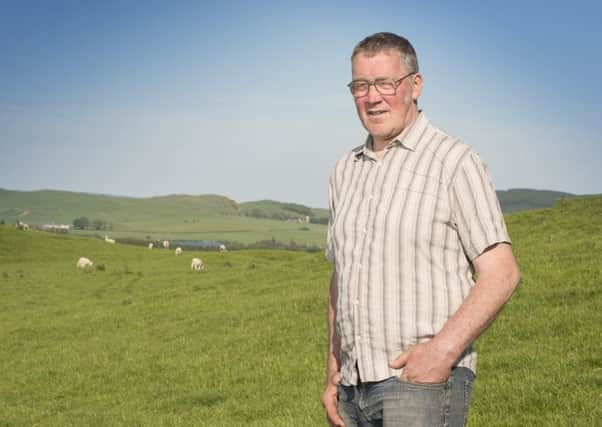Farm sector needs like-minded allies for battles ahead
This article contains affiliate links. We may earn a small commission on items purchased through this article, but that does not affect our editorial judgement.


One of those confirms that uncertainty is bad for business, especially in farming where long-term planning is needed.
It would therefore be thought that politicians who continually extol the virtues of this country producing more food would try to avoid creating doubt and ambiguity. Not a bit of it.
Advertisement
Hide AdAdvertisement
Hide Ad• READ MORE: Agriculture bodies team up to offer Brexit advice
At both UK and Scottish level, the politicos are now spouting their mantras with scant regard as to the effect their words will have on businesses that prefer having a known future – or at least a path with some signposts.
We now have a situation where even farm consultants and other brainy people are scratching their heads and groping through the heap of political mince and dogma out of which the industry has to find a future.
The problem is not with the almost limitless list of options but with the omission of any facts or consequences of going down any particular road.
Defra, which might have given a lead as to the shape of future agricultural policy, is silent on it. It either does not know, which is worrying, or it does know and is not saying, which is more concerning given its supposed lead role.
The Scottish Government has also been silent on any detail of its preferred route forward on agricultural policy, preferring to take the “feardie” position which relies on criticising any action or inaction by Westminster. It claims it cannot put any policies forward until it knows the budget it will have, but does not explain why it cannot put forward what it would like and then cast scorn on the UK government if that cannot be afforded.
So for the foreseeable future, until such time as the future strategy can be established, the best advice for farmers is to keep their heads down and cut out any frills their businesses might still retain.
Advertisement
Hide AdAdvertisement
Hide AdIn the absence of certainty, the safest advice is also to reduce expenditure until politicians give clear unambiguous policies.
This standstill until the policy mist clears might, as one set of consultants stated last week, last up to 2020 or at least until the politicians notice farming is taking the safe road forward and that does not include investment in new machinery or spending much money; in other words an industry on standstill.
The joining up of a number of UK-wide organisations supplying the agricultural industry last week to fight the consequences of Brexit was significant.
This new lobbying body, the Agri Brexit Coalition, which represents everybody from grain traders to agricultural contractors, will primarily look at issues arising from trade talks but perhaps it should also be prepared to comment on the consequences of an agricultural industry in long-term lockdown.
Meanwhile, NFU Scotland, the main lobbying organisation in Scotland led by president Andrew McCornick, has held an emergency board meeting to discuss the political turmoil and how best to deal with it.
To its credit, the union was fast out of the blocks in listing its main priorities after Brexit, but now it faces the added complication of indyref2.
Traditionally the union has not taken a stance on purely political matters. It held that position in 2014 with indyref1 and this resulted in former union presidents in opposite camps.
Despite pressure from activists on both sides of that debate, the union is unlikely to move from a neutral position in any future referendum on indpendence. Apart from any other consideration, any action leading to a loss of membership would damage the union’s ability to fight on the many other issues facing the industry.
Advertisement
Hide AdAdvertisement
Hide AdIn fact, following the actions of other organisations such as those in the allied industries uniting to fight the negative effects of Brexit, the Scottish union should be looking to ally itself with other similar-minded bodies for the battles ahead.
The obvious candidate for linkage would be the English union, which has traditionally been seen as rather smug and complacent compared with its northern neighbour. But now may be the time to cast aside these images and link up more formally or federally with an organisation with ten times the political clout.
Some may swoon at the very thought of having established links with England but these are uncertain and challenging times and a radical solution might provide the right answer.